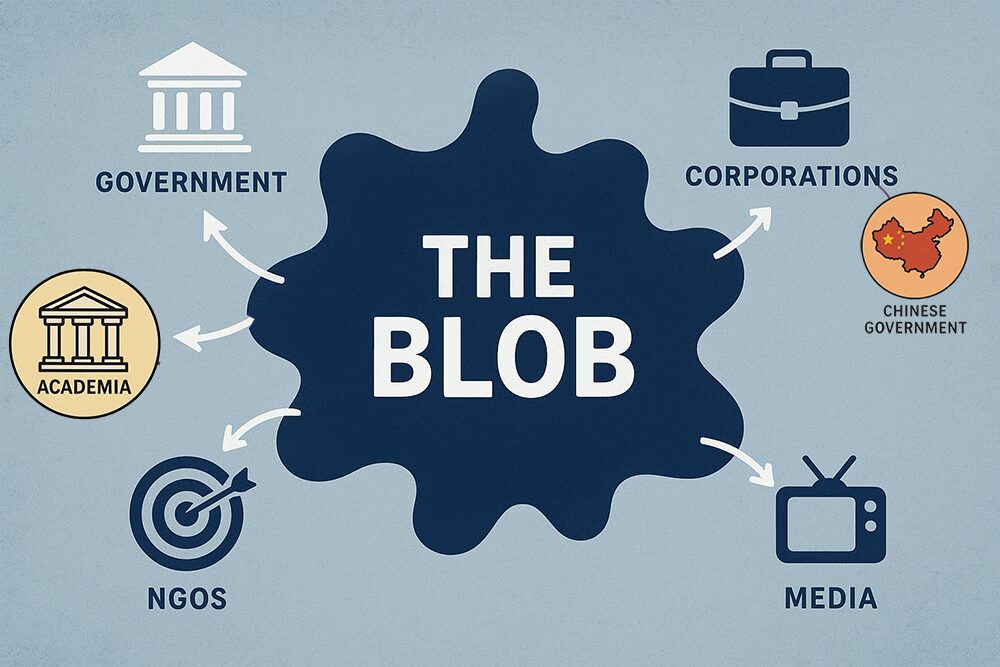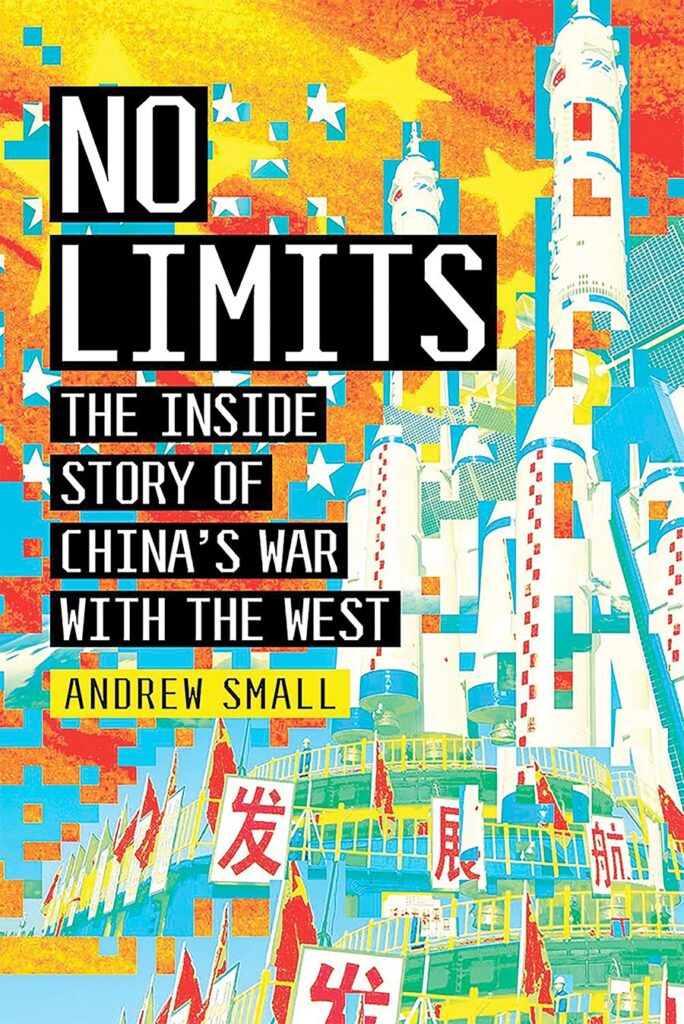
The Hidden Network of Intelligence, NGOs, and Global Power
Researcher Mike Benz, a policy analyst, and former U.S. State Department official ,has outlined what he calls the “CIA complex” — a web of intelligence agencies, NGOs, and corporate institutions that operate together to shape political outcomes and social trends. Benz argues that this system projects power abroad and at home under the appearance of independent “civil society” activity.
A Network Beyond the CIA
The CIA is only the visible part of a much larger machine. Surrounding it is what he calls the Blob — a network of government agencies, NGOs, foundations, media outlets, and universities. These entities coordinate policy influence while maintaining an image of independence.
NGOs often function as extensions of intelligence operations, providing cover for influence campaigns and regime‑change projects under humanitarian or “democracy‑promotion” language.

Three Layers of the “Blob”
We use Benz description of the blob which divides this network into three levels:
- Intelligence and state institutions – such as the CIA and the State Department.
- NGOs, foundations, and think tanks – that act as intermediaries for policy and information operations.
- Corporations, media, and academia – that adopt and mainstream the agendas set by the first two.
This forms a self‑reinforcing system capable of steering narratives and public opinion both internationally and within the United States.
Antifa and Domestic Extensions of the Network
Groups like Antifa are examples of how this network can manifest domestically. Antifa operates as a movement that claims to fight authoritarianism while, paradoxically, using authoritarian tactics itself. Some commentators suggest that the group’s funding channels and ideological alignment with certain political and intelligence interests place it within the broader network described as the blob.
Money, Class, and the Global Dynamic
Beyond institutional power, we wish to highlight a broader socio‑economic dynamic at play. While society often recognizes envy of the rich by the poor, we argue the reverse drive — the desire of the wealthy to make the less affluent poorer — is far more intense and consequential.
According to our analysis, modern globalism and open‑border labor policies function not out of altruism but as tools to depress wages, expand labor supply to global level, and raise the value of capital assets. By constantly widening the labor pool through globalism, global elites can ensure lower wages .
Globalism requires erosion of national cohesion, fragmented societies, and increased dependence on centralized institutions, these then become objectives of the CIA and its blob.
This perspective sees big finance, globalist governance structures, and intelligence agencies as converging around a shared interest: sustaining a system that favors capital concentration, impoverishment of everyone else , suppresses national independence, and weakens (ultimately removes) democratic oversight.

Here we must add a significant foreign power behind the blob, the Chinese government whose declared ‘total war’ against the ‘west’ defines its approach to global influence, this strategy is aimed at challenging Western dominance without resorting to direct military confrontation, China’s considerable influence over western multinationals is a tool used to shape these corporations politics in supporting the western globalist and self destructive open borders and climate policies and authoritarianism which hollow the west from the inside. Shipping vast quantities of Fentanyl to the west is another ‘total war’ element.
For context lets remember Bezmenov of the KGB : Ideological subversion is the process of bending a society’s perception of reality so completely that it destroys itself without a need for military force. It is a long-term process, spanning 15-60 years.
- Educational systems at all levels are key targets, turning schools into indoctrination centers that promote relativism over facts and critical thinking.
- Media infiltration sows confusion by amplifying divisive narratives and discrediting objective truth.
- Religion is attacked by portraying it as outdated or oppressive, eroding spiritual anchors and replacing them with state loyalty or nihilism.
- Family structures are weakened through promotion of individualism, divorce, and alternative lifestyles that fragment social cohesion.
- History is rewritten to vilify national heroes and traditions.
- Economic sabotage widens class divides, shrinks the middle class, and breeds resentment through inflation, shortages, or inequality.
A Self‑Perpetuating Power System
NGOs and intelligence networks form the scaffolding of this system. They create a circuit where wealth, ideology, and control circulate freely between the privileged public and privileged private sectors — beyond the reach of ordinary voters. Whether through overseas democracy programs or domestic censorship initiatives, the same infrastructure keeps power insulated from popular accountability.
Mike Benz
A proponent of this analysis for understanding how intelligence, NGO, and financial systems work together to maintain global influence and one who has done a lot to bring it to the public’s attention is Mike Benz known for his work on issues related to internet governance, information control, and the intersection of technology with intelligence and foreign policy.
He is the Executive Director of the Foundation for Freedom Online (FFO), a nonprofit organization that investigates what Benz calls the “censorship industrial complex”—the coordination between government agencies, tech companies, and NGOs to monitor or suppress online speech.
Government and Policy Experience
Before founding FFO, Benz served in the Trump Administration’s State Department, where he worked on international communications and cybersecurity policy. In that role, he dealt with issues relating to internet freedom and global information operations. He has also worked on Capitol Hill and in technology-policy advisory capacities.
